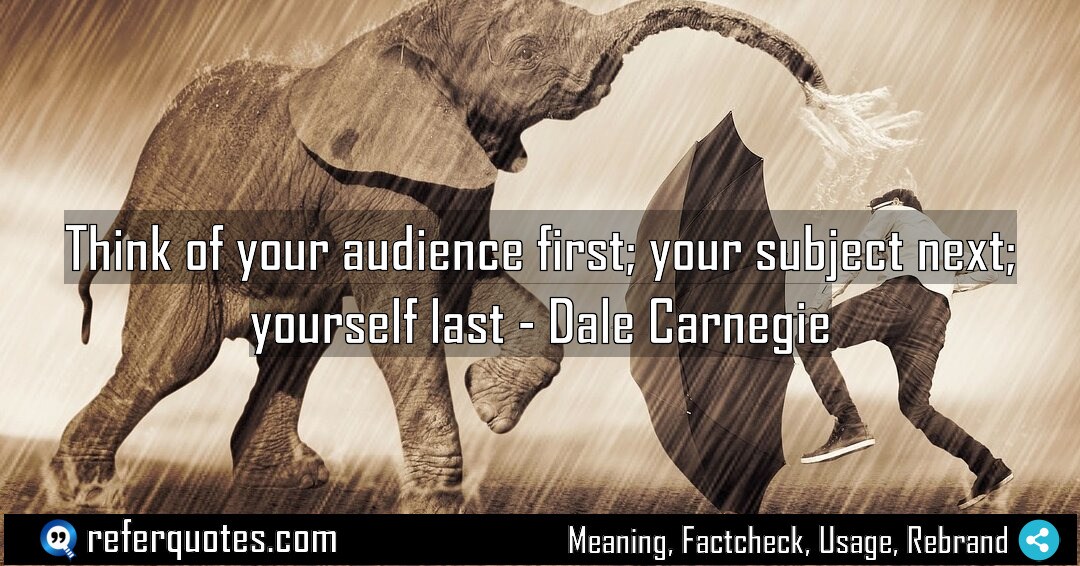Think of your audience first; your subject next; yourself last. It’s the golden rule of public speaking, and honestly, of any effective communication. This simple hierarchy flips the script on why most presentations fail.
Share Image Quote:Table of Contents
Meaning
It’s a simple, three-step priority list for any communicator: serve your audience’s needs, then deliver your subject, and finally, let go of your own ego.
Explanation
Look, I’ve seen so many smart people bomb on stage. And it’s almost always because they get this order backwards. They’re so wrapped up in their own expertise, their own slides, their own fear of looking stupid. The audience feels that. They feel like an afterthought.
When you put the audience first, you start with their world. What keeps them up at night? What do they *need* to walk away with? You frame everything from their perspective.
Then, and only then, do you bring in your subject. You’re now presenting it as the *solution* to their problems, not just a data dump.
And putting yourself last? That’s the masterstroke. It kills the performance anxiety. You’re not there to be judged; you’re there to be of service. It’s incredibly liberating.
Quote Summary
| Context | Attributes |
|---|---|
| Original Language | English (3669) |
| Category | Business (233) |
| Topics | audience (5), empathy (143), focus (155) |
| Literary Style | triadic (5) |
| Emotion / Mood | determined (116) |
| Overall Quote Score | 65 (29) |
Origin & Factcheck
This comes straight from the 1915 classic, The Art of Public Speaking by Dale Carnegie and Joseph Berg Esenwein. It was published in the United States. People often attribute it just to Carnegie, and while his voice is dominant, Esenwein was a co-author on this specific work.
Attribution Summary
| Context | Attributes |
|---|---|
| Author | Dale Carnegie (408) |
| Source Type | Book (4032) |
| Source/Book Name | The Art of Public Speaking (25) |
| Origin Timeperiod | Modern (528) |
| Original Language | English (3669) |
| Authenticity | Verified (4032) |
Author Bio
Dale Carnegie(1888), an American writer received worldwide recognition for his influential books on relationship, leadership, and public speaking. His books and courses focus on human relations, and self confidence as the foundation for success. Among his timeless classics, the Dale Carnegie book list includes How to Win Friends and Influence People is the most influential which inspires millions even today for professional growth.
Official Website |Facebook | X | Instagram | YouTube |
Where is this quotation located?
| Quotation | Think of your audience first; your subject next; yourself last |
| Book Details | Publication Year/Date: 1915 (first edition); ISBN/Unique Identifier: 9781420933431 (common Digireads reprint); Last edition. Number of pages: common reprints ~300–480 pages (varies by printing) |
| Where is it? | Part II Thinking and Feeling, Unverified – Edition 1915, page range ~52–62 |
